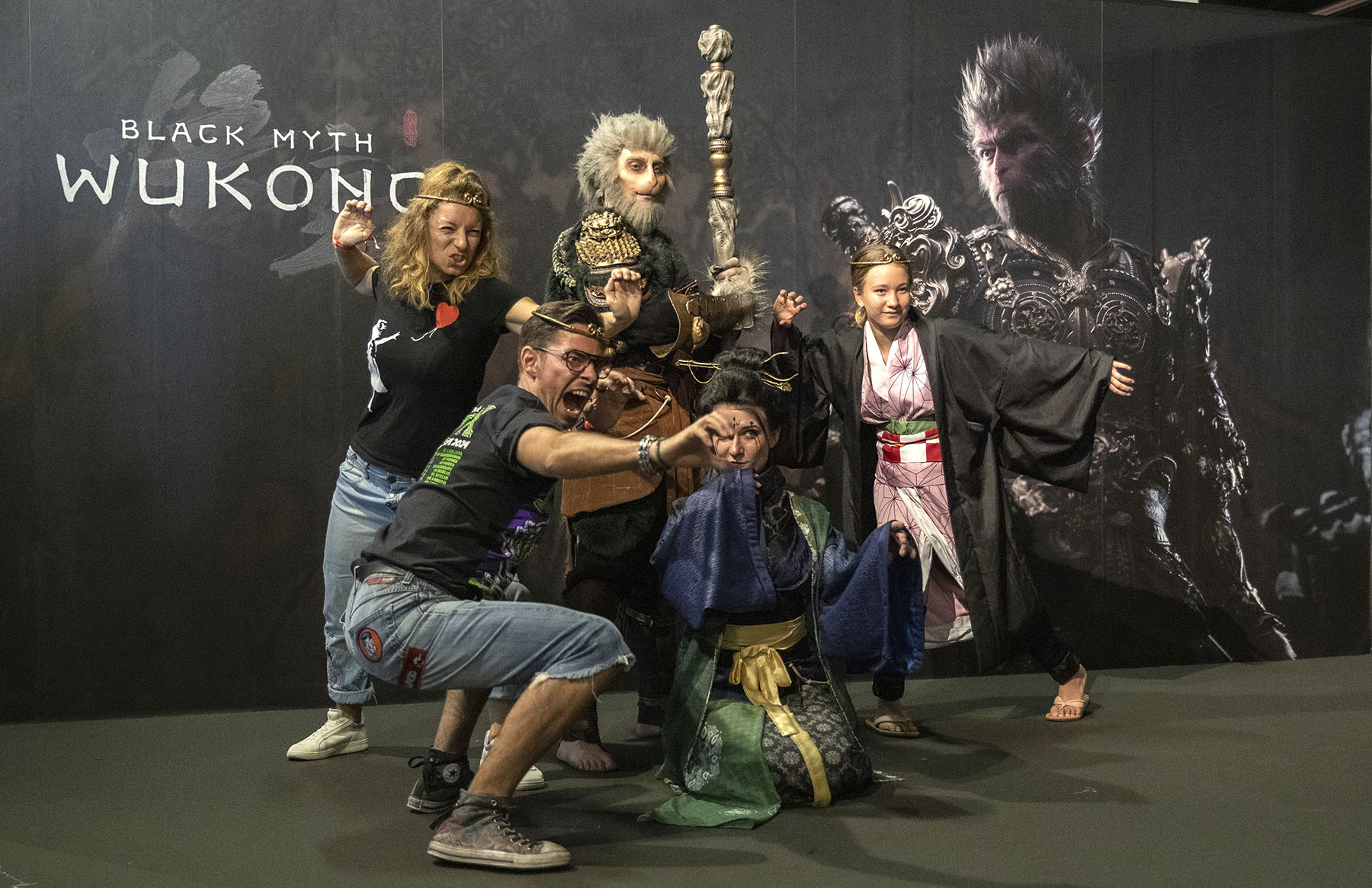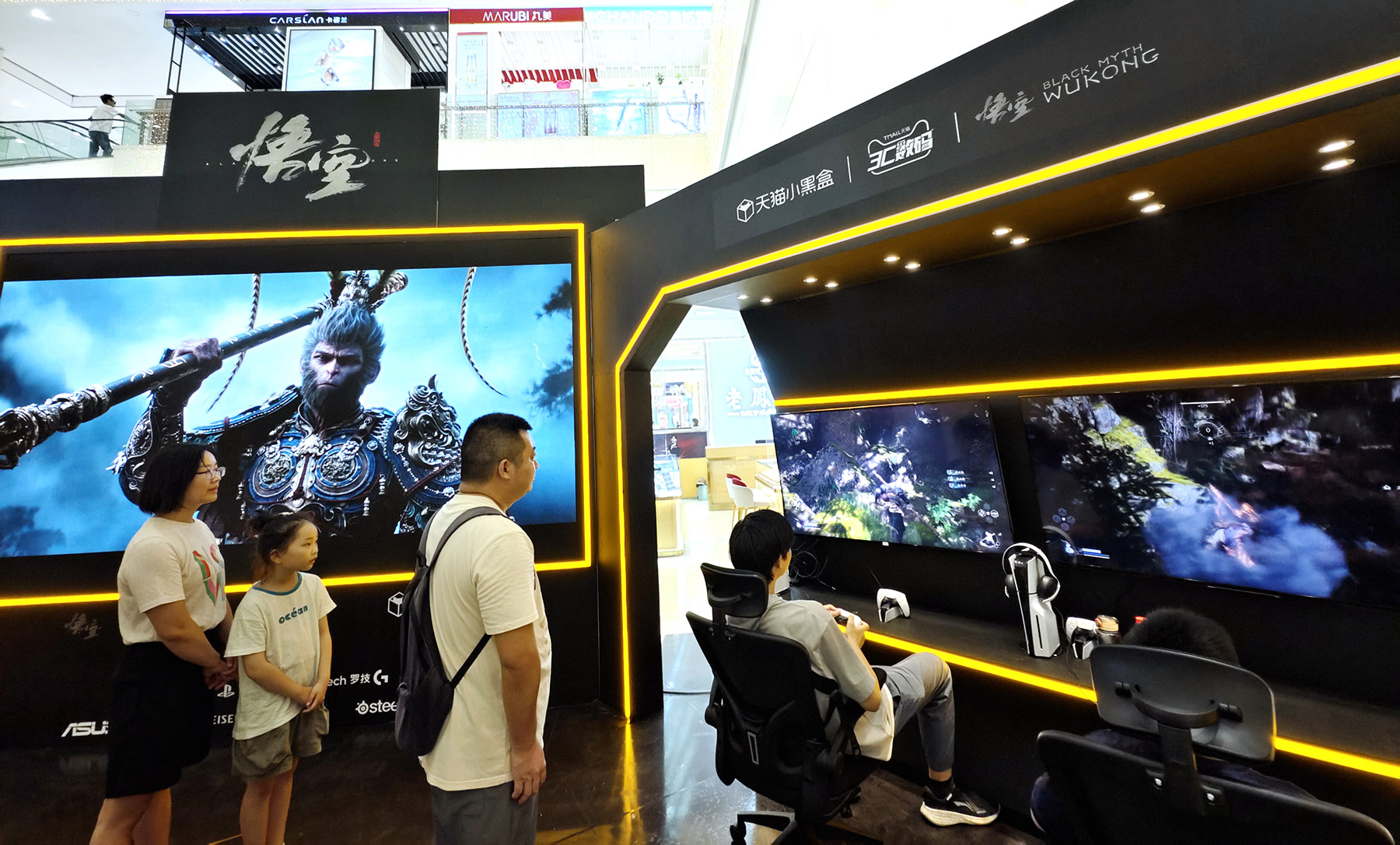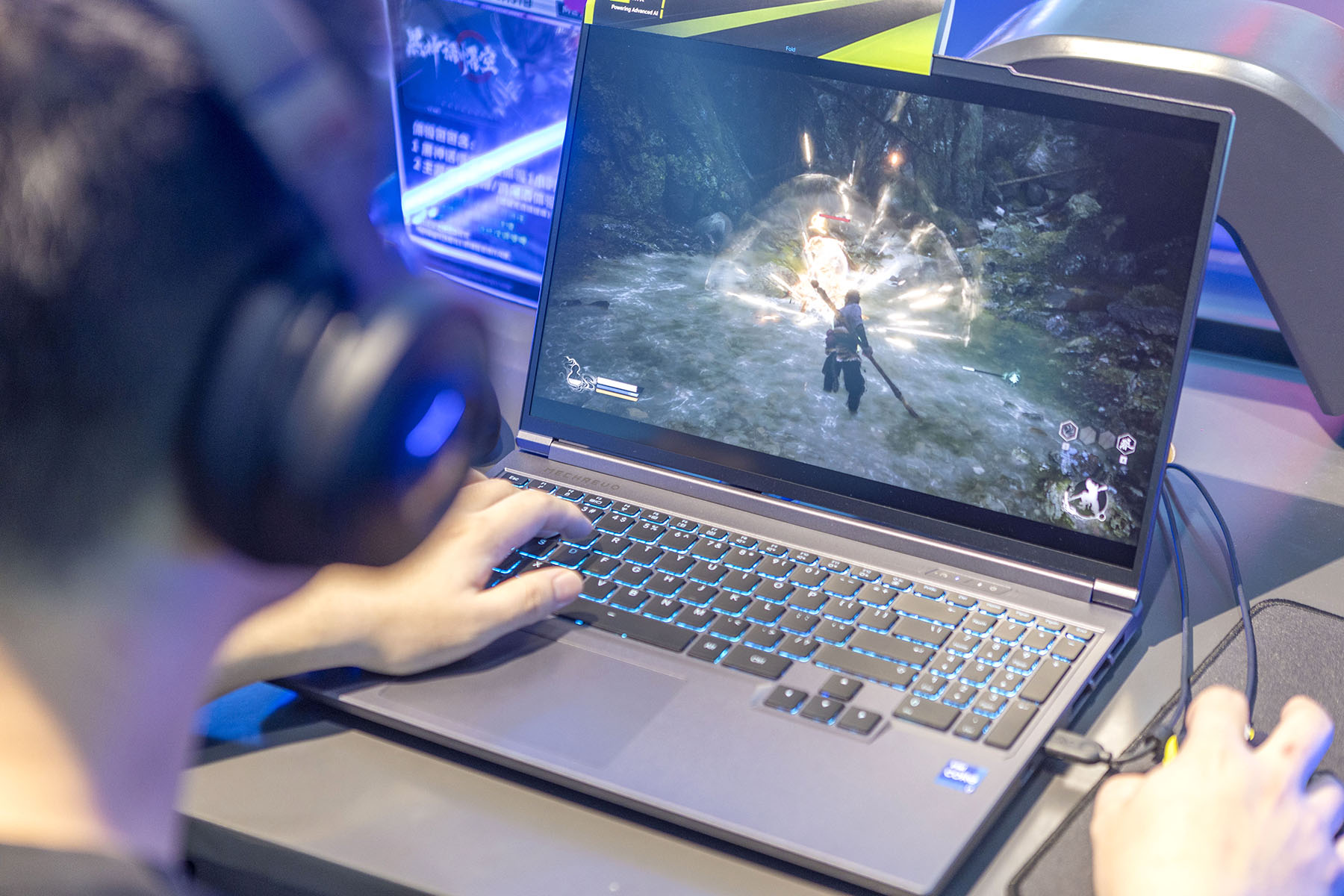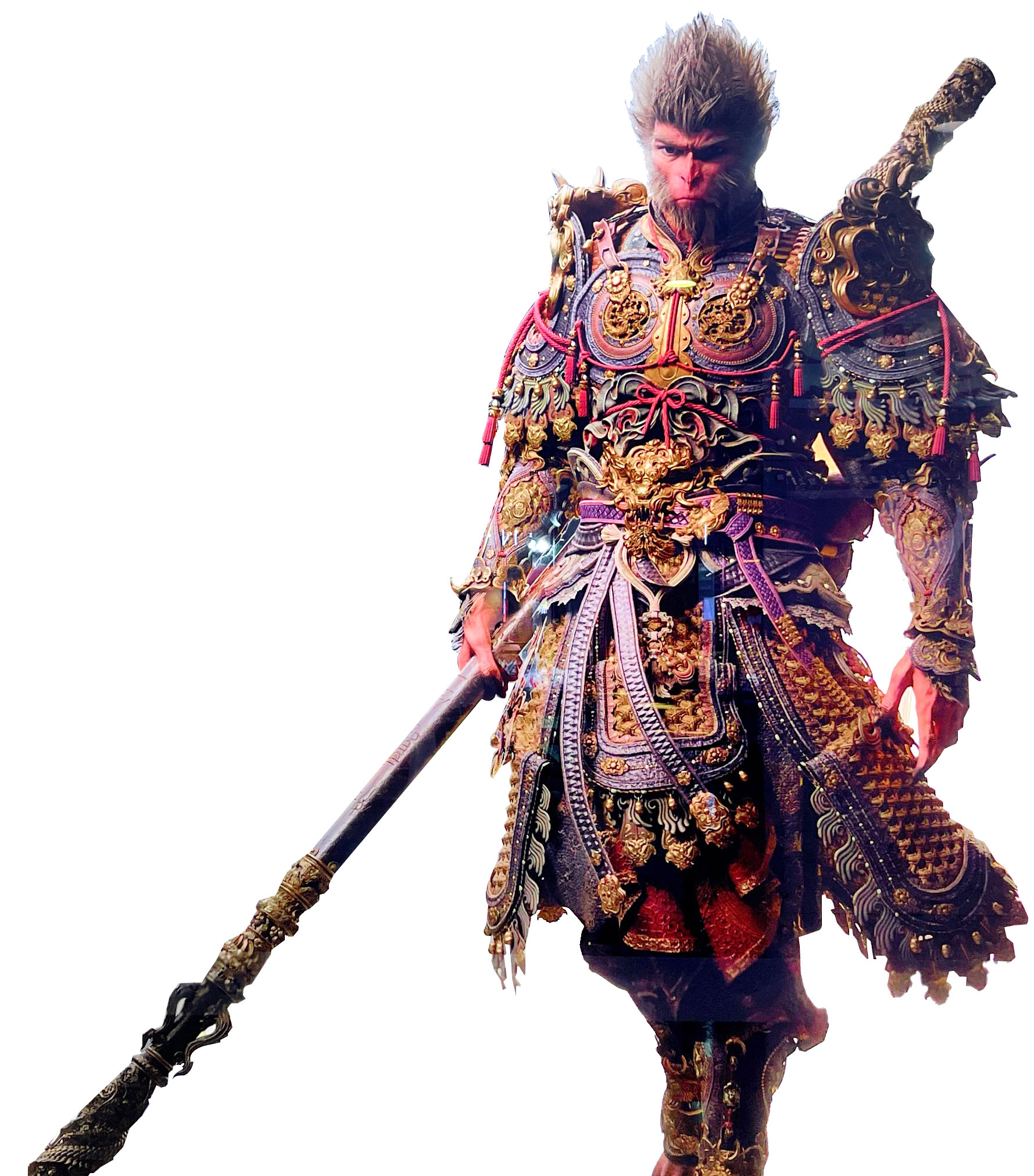Chinese-produced Black Myth: Wukong counters Western dominance with homegrown hero

‘It’s not excessive to say that I have been expecting a game like this my entire life,” said 39-year-old Kang Jianxiong, while manipulating the hero in the Black Myth: Wukong video game to stand on the top of his magic staff and launch a heavy attack on his enemies.
He said he had not expected the game’s stunning visual effects or the precise modeling of the characters, which are both excellent according to player reviews for the game.
Kang, who has played video games since he was 8 years old, said Black Myth: Wukong is the first influential Chinese game based on a Chinese legend he has played on an international gaming platform such as Steam.
In the 1980s and early 1990s, personal computers were new to China and a luxury for most families.
Kang and his friends mainly played arcade games, with the text usually in English. It was not until he studied English in middle school in the mid-1990s that he learned the stories behind the games he played.
Contra and Super Contra were part of a run-and-gun series featuring commandos fighting an alien invasion, while the King of Dragons and the Knights of the Round were largely based on the tales of King Arthur from British legend.
Yang Han, a 42-year-old player, said it took him 15 years to learn that Super Mario Bros was a story “told by a Japanese company about an Italian pipe worker’s adventures in the underground tunnels of New York.”
Yang got a computer in 2000 and joined the wave of fans playing the Red Alert 2 game released the same year. Like most games, it was in English and involved a fictional Soviet invasion of the United States and a battle for territorial control.
Yang played the game without knowing the history of the Cold War, the Soviet Union, and the Cuban missile crisis. This historical ignorance was echoed by hundreds of players of a similar age to Yang in commentary threads on the social media platform Sina Weibo.

On Zhihu.com, China’s equivalent to Quora, a hot question was why all the legendary characters in internationally popular games, from aliens from outer space to ancient dragons hiding in deep underground holes, had one thing in common — speaking English.
“The whole gaming world was invented by English-speaking teams based on English-language literature to serve English-speaking customers,” was the answer that netizens agreed with the most.
While many games are played in English and have cultural roots in Western culture, a lot are produced in Japan, which is considered the creator and innovator of video games.
Gu Kai, a senior games producer who founded Armored Horse Studio, made the popular game Glorious Mission with the support of the People’s Liberation Army. “Prejudices easily get hidden in video games as a cultural product,” Gu said, citing Red Alert 2 as an example.
In the game, developed by US company Westwood Studios, Soviet troops that occupy New York City can fire at unarmed civilians, while US troops that invade the Ural Mountains in Russia broadcast from trucks, appealing to residents to follow them.
“Those behind the game development team try to leave each and every player with the impression that the US military promotes humanitarianism and bravely defends peace all over the world,” Gu said. “That’s apparently not the truth, even when viewed by US media outlets, but they can repeat such misinformation a hundred million times to players around the world and always get some believers.”
This is a key reason why there have always been voices calling for Chinese teams to develop games based on Chinese literature and promote them worldwide.
At the annual session of the Chinese People’s Political Consultative Conference National Committee in 2023, member Guo Yuanyuan, who is also vice dean of the School of Culture and Communication at the Capital University of Economics and Business, called for the domestic video game industry to promote its products overseas to gain global influence. This was despite popular domestically developed games rarely having had an impact overseas at that point.

It was not until Honor of Kings, a smartphone game that allows users to fight as heroes in teams, was successful in 2023 that Chinese games with Chinese heroes finally gained international standing.
By July, the game had over 50 million registered users worldwide from more than 160 countries and regions.
Then came the recent phenomenon of Black Myth: Wukong, based on the Chinese classic novel Journey to the West, which tells how a monkey born out of natural forces acquired skills and guarded his master on a journey to a Buddhist mountain to get holy scriptures.
From the game’s official release on Aug 20 until Aug 22, the maximum number of global players on the Steam platform was 2.2 million, 2.35 million, and 2.4 million. The number of online players has exceeded those for popular games such as Counter-Strike 2, Dota 2, and Elden Ring — second only to the record set by PlayerUnknown’s Battlegrounds.
By the evening of its release day, over 3 million copies of the game had been sold on Stream’s international video game digital distribution service. By Aug 23, the total number of copies sold exceeded 10 million. Another 1.5 million copies were sold on WeGame, PlayStation, and Epic! for total sales to exceed 1.5 billion yuan ($210.3 million).
On X, Meta (formerly Facebook) and Quora, a question quickly spread among international players — who is that Chinese monkey character in Black Myth: Wukong and what is the story behind him?
Black Myth: Wukong has proved so popular that a question about it was raised at a Ministry of Foreign Affairs news conference on Aug 21. Ministry spokeswoman Mao Ning said while she knew little about video games, judging from its name and the fact that it is derived from Journey to the West, she believes Black Myth: Wukong showcases the attractiveness of traditional Chinese culture.
Many voices on Sina Weibo called it “an excellent showcase for a Chinese cultural export”.

Feng Ji, founder and head of Shenzhen-based Game Science, the developer of Black Myth: Wukong, said his team did not set out to represent Chinese culture when they started the project in 2018.
“For us, it’s natural that traditional Chinese literature, which is based on Oriental philosophy and values that are appealing to the world, has much space to explore,” he said.
“We are naturally expressing Chinese culture. For us, that’s a rational thing to do, so we have done it.”
He said it was an instinctive decision to choose Journey to the West as the basis for the game.
“When we Chinese see the image or hear the name of Sun Wukong (the Monkey King), or even hear the music of the TV series Journey to the West, we have a unique feeling,” Feng said. “We (the company employees) have been following our hearts to create games that touch our souls,” he added.
Wukong’s popularity with both domestic and global audiences is another reason the Monkey King was selected as the game’s hero.
The story of Wukong is known by some people in the West.
Dota, a popular game based on the Western-style fictional magic of WarCraft III, included the Monkey King’s magical staff in its divine weapons list and added him to the game’s pool of heroes in recent years. Dota 2, the game’s successor, continued the practice.
Videos about the Monkey King with English audio or subtitles were popular on YouTube before the game’s release, with some viewed as many as 4 million times.
Wukong’s story has also attracted Western scholars such as Jim R. McClanahan who studied anthropology at Miami University. His online articles about Wukong give intricate details about the Monkey King, such as his immortal breath being able to save souls or his equivalent birth year in the Gregorian calendar.
However, Feng says fine literature is not the sole basis for a good video game.
“Although Journey to the West is an excellent ancient Chinese legend, we still need to use the most advanced technologies of the era we live in to make a good game. The software tools, graphics processing technologies, and the way the story is told must all suit the times.”

During one meeting of the development team, Feng asked them: “We have seen many high-quality movies and played many excellent games, so can we tell this Chinese story with high standards, too, concerning the quality of its technological details, graphics, and everything? Any lack of strict quality control will disrespect this excellent Chinese story.”
Feng said this inspired the whole team.
Yang, the 42-year-old player, is one of those impressed by the game’s quality. “They have done such good modeling that you can clearly see the detailed hair of Wukong, his enemies and friends, even the non-player characters,” said Yang.
Gu, the veteran games producer, said the modeling is perhaps the most precise of all major video games on the market. He said if all the fighting scenes were joined together they would make a good action movie.
Kang, who enjoys literature as well as playing games, said Black Myth: Wukong is a continuation of the Journey to the West story, meaning the development team wrote a new novel to add to the historical masterpiece. The new story follows the original seamlessly and logically, and the details are so good that “each and every one of them, even the most negligible non-player character has their own story”, he said.
That is why Black Myth: Wukong is classified as an AAA game in the country, meaning it required “a lot of money, a lot of time, and a lot of resources” to become a masterpiece, Gu said.
On social media platforms, Chinese players have widely shared a poem to express their pride about playing the successful homegrown game:
In various games’ virtual world
you mounted in Damascus,
blade in hand
took a pirate trip in the Atlantic
won a duel in the Wild West
and acted as an assassin in Egypt.
Now, finally,
you can come back
and be a hero in your own land.
Gao Zunrong contributed to this story.
zhangzhouxiang@chinadaily.com.cn


